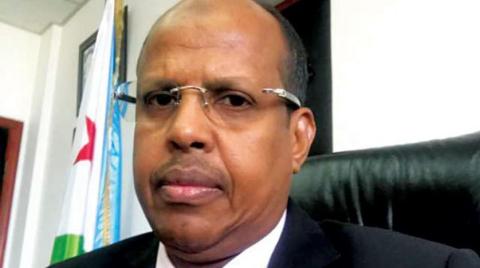
Palestinian Foreign Minister Riad al-Maliki said that Palestinian powers were seeking several frameworks of action to confront the repercussions of the US decision to recognize Jerusalem as the capital of Israel and the ongoing Israeli escalation.
In an interview with Asharq Al-Awsat, Maliki noted that forming a successful mechanism for settling the Middle East conflict required a framework capable of sponsoring a multilateral peace process, which is independent of Washington’s monopoly and committed to the relevant international resolutions.
Commenting on the recent meeting between Russian President Vladimir Putin and his Palestinian counterpart Mahmoud Abbas in Moscow, the foreign minister said: “The visit came to complement consultation and coordination with the Russia side… especially in the wake of US President Donald Trump’s decision to recognize Jerusalem as the Israeli capital and to move the US embassy to it.”
He stressed that bilateral talks have focused on the repercussions of the US announcement, the international reactions to it and the Palestinian efforts to counter this decision at the diplomatic, political and legal levels.
Maliki noted in this regard that the Palestinian side did not present any demands to Russia, but listened to the Russian proposals and advice on the next measures to be taken.
“The meeting did not result in a specific outcome, but talks were held in a very positive atmosphere and reflected the Russian seriousness in helping the Palestinian side to move in response [to the US decision],” the Palestinian official said.
Underlining the need to end the US monopoly over the Israeli-Palestinian file, Maliki said that Abbas has called for setting a multilateral international mechanism that would sponsor the political process based on the decisions of the international legitimacy.
He added that European Union Foreign Policy Chief Federica Mogherini has emphasized, following her meeting with Abbas, the need to find such a mechanism, stating that the US could not be excluded from any political settlement, but affirming that Washington should not have a unilateral role in managing the peace process.
“We recognize that the pressure will continue and will not only be from the Israelis in the sense of occupation, and from the Americans in the political and financial sense, but extends to pressure from other parties in many ways,” Maliki stated.
He added that the Palestinian leadership might resort to a new level of action, in case the Israeli escalation continued, and would go towards reviewing all signed agreements, including the Oslo Accords, in case Israel failed to abide by them.
The Palestinian foreign minister pointed to “the possibility of going to the International Criminal Court to determine whether the Israeli occupation turned into a kind of colonialism, which means dropping legal responsibilities as an occupying power. This would call for action on the activation of the United Nations decolonization committee.”
He warned, however, that the Palestinians “cannot move alone in all these directions and it is very important to coordinate their positions with regional and international partners.”












